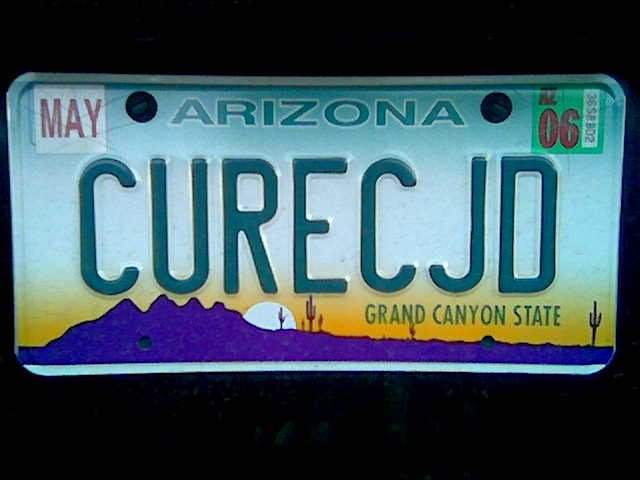When it isn't CJD
Part of what I hope to accomplish with this blog is networking. If someone going through the uncertainty of losing a loved one to CJD finds this blog and gets to have some questions answered, I've done something right.
CJD is extremely difficult to diagnose, and no clinical diagnosis exists. The only sure way to find out if a patient has CJD is to perform an autopsy after death. This takes forever and is done by the NPDPSC, or National Prion Disease Pathology Surveillance Center in Cleveland, Ohio at Case Western Reserve University.
But sometimes, a patient shows every possible symptom of CJD -- only it isn't CJD. Over a year ago, I met a local women whose mother in law was dying of something I was pretty sure was CJD. The woman had symptoms like myoclonus, balance problems and I can't remember what else. Whatever she had progressed fast, leading everyone to believe she had CJD. An autopsty after death showed it wasn't CJD. It was Parkinson's or something like that. At any rate, I lost touch with this woman who lost her mother in law. I don't blame her. The world of CJD is so dark, I don't blame people for running away from it. The eerie thing was that I talked to this woman over the phone and walked her through the dying process of CJD as it happened to my mother and her mother in law died exactly the same way! Step by step, she died like my mom did -- about 48 hours after the feeding tube came out.
This year though, we witnessed a sort of miracle with one family. I guess a miracle would be finding the cure, but I'll call this a miracle nonetheless. A man in South Carolina joined our support group, CJD Voice, looking for answers. Everyone in the group, self included, seemed to think the man's father in law had CJD. He had every symptom in the book. But his family kept digging for answers and battling with doctors. (I have been there!) Recently, the man's suffering was found to be caused by psychological problems. He was given meds, anti-depressants in strong doses, if I remember correclty. He's fine now. It wasn't CJD. I still talk to this man in North Carolina about his father in law.
When my mom was dying, I read somewhere that there are about 600 rare neurological conditions. It never ceases to amaze me what a mystery the human brain is.




<< Home